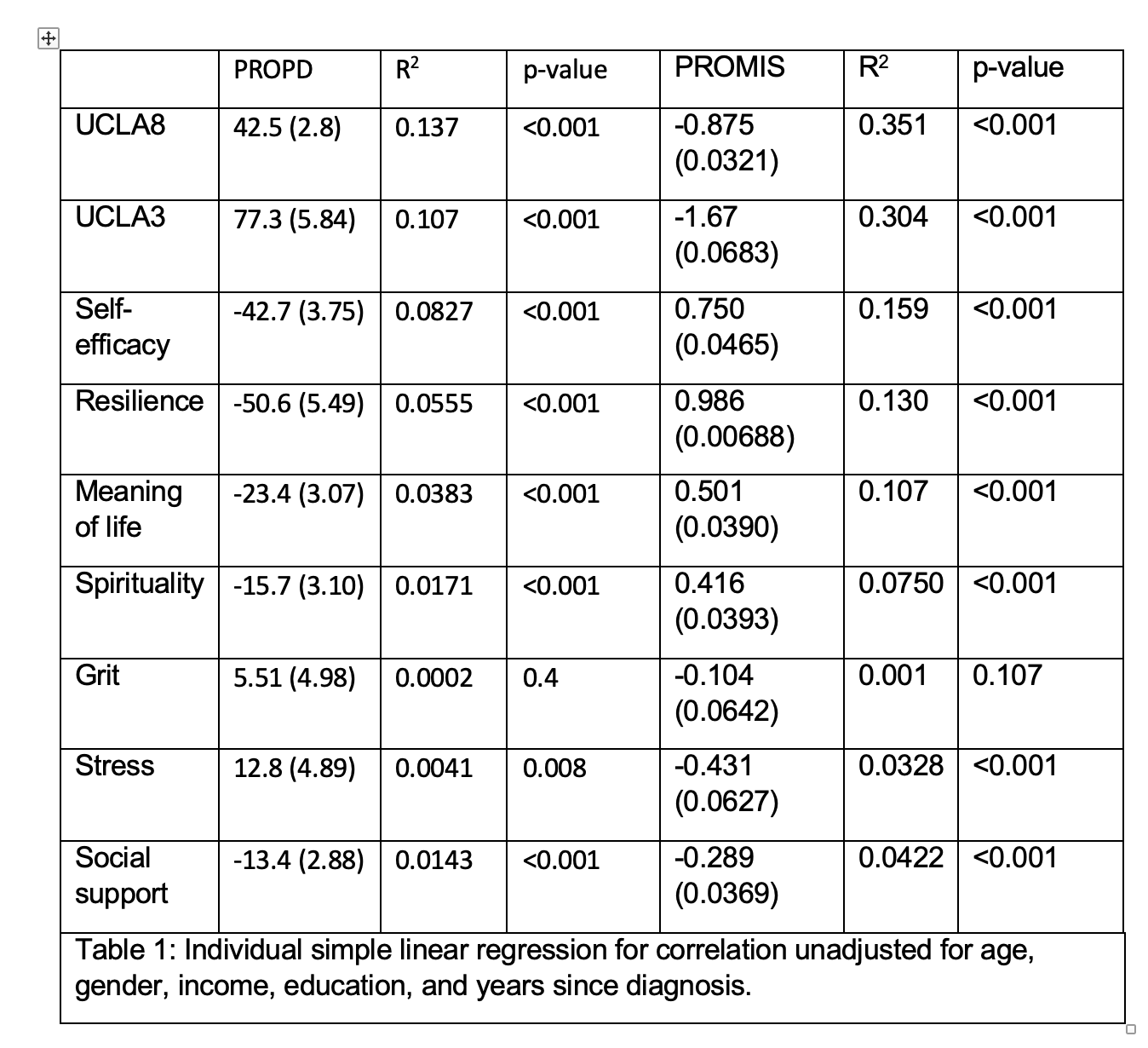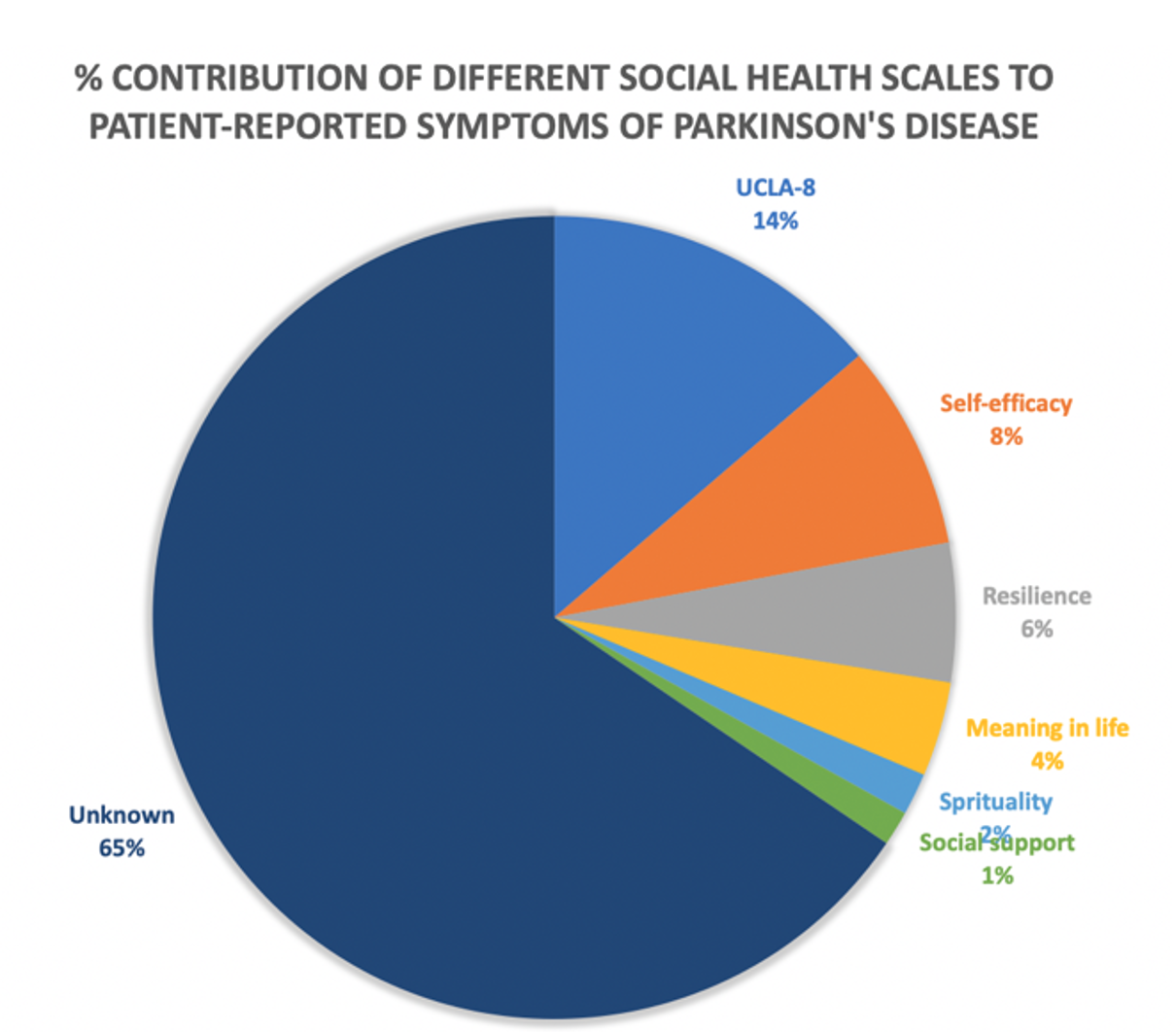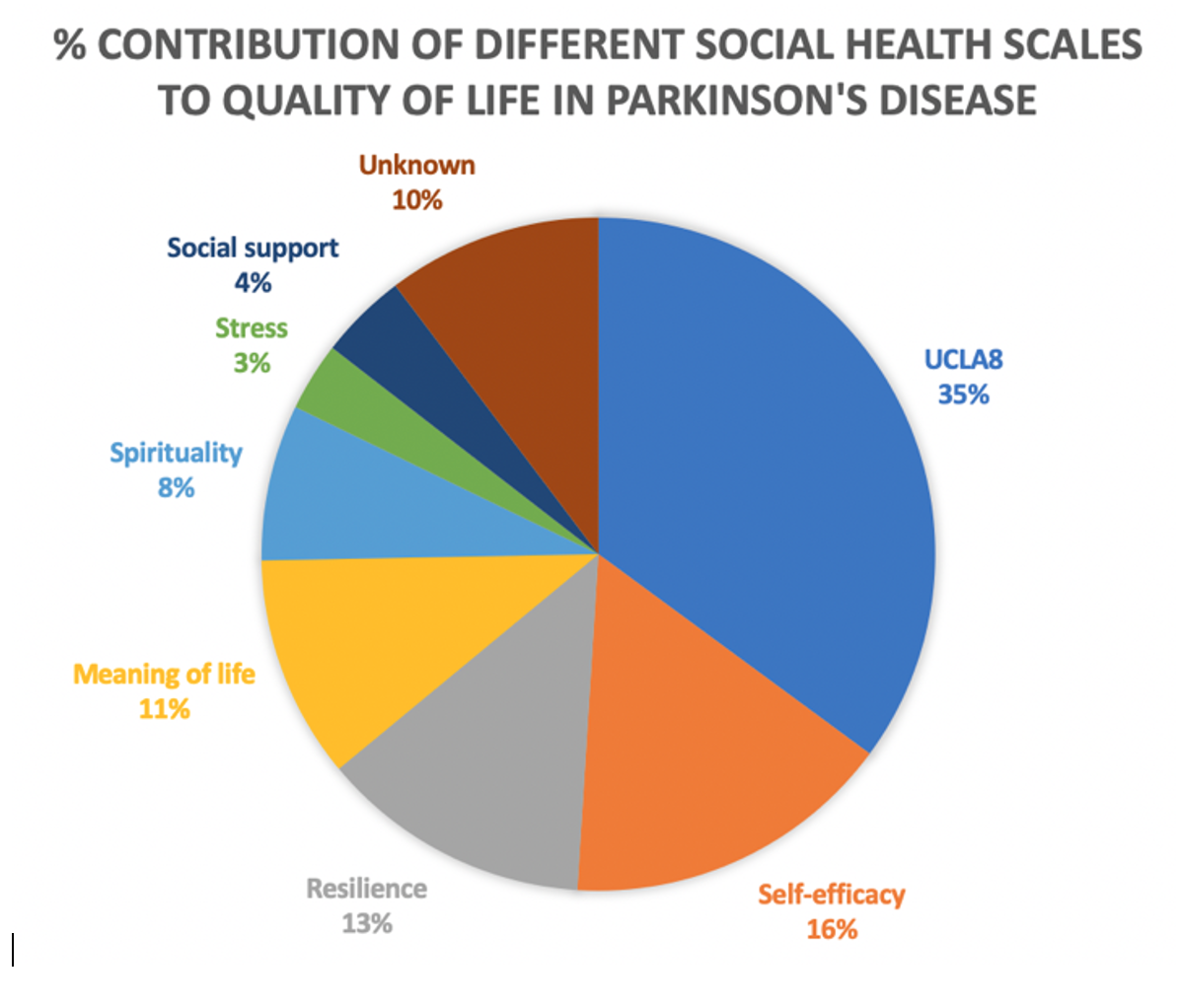Category: Rating Scales
Objective: To evaluate the degree to which modifiable psychosocial (PS) variables including loneliness, self-efficacy (SE) and resilience explain the variance observed in Parkinson’s disease (PD) symptom severity and quality of life (QoL).
Background: Research shows that poor PS health significantly contributes to a variety of disease states and poor outcomes. The detrimental effects of loneliness on people living with PD has been elucidated; however, little is known about how loneliness and other PS variables contribute to PD severity, whether providers should screen for them, and whether PS interventions will change outcomes.
Method: The Modifiable Variables in Parkinsonism (MVP) Study is an ongoing prospective longitudinal natural history study spanning over 7-years to date. To better understand how PS health (loneliness, SE, resilience, meaning in life (MIL), spirituality, grit, stress, and social support) contributes to PD symptom severity (PRO-PD) and QoL (PROMIS), these questionnaires were added to the 2021 iteration of the web-based survey (N=1428). PRO-PD includes motor, non-motor, and mental health-related PD symptoms. The unadjusted R-squared was used to explain the degree to which each scale contributes to overall PD symptoms and QoL. A second adjusted model incorporating age, gender, income, and years since diagnosis is included for completeness. For data visualization purposes, it was assumed that the scales did not address overlapping variables.
Results: Loneliness, as measured by the UCLA8, accounted for 13.7% of the variance observed in PD symptoms and 35.1% of the variance observed in QoL. Additional PS variables contributing more than 5% to the variance in PD symptom severity were SE (8%) and resilience (6%). For QoL, SE (16%), resilience (13%), and MIL (11%) were also key contributors.
Conclusion: Loneliness, MIL, resilience, and SE accounted for a striking amount of the variance observed in PD symptom severity and QoL. This model strengthened after taking age, gender, income, and years since diagnosis into account. Psychosocial contributors have been heretofore neglected in PD management and research. Since these are modifiable with relatively inexpensive and short-term interventions (e.g., social prescribing), emphasis should be placed on improving disease awareness, population wide screening, appropriate triage, and creating meaningful interventions.
To cite this abstract in AMA style:
I. Subramanian, B. Mcdaniels, D. Fox, L. Mischley. Loneliness, Self-Efficacy, and Resilience: Neglected Modifiable Contributors to Parkinson’s Disease Symptom Severity and Quality of Life [abstract]. Mov Disord. 2023; 38 (suppl 1). https://www.mdsabstracts.org/abstract/loneliness-self-efficacy-and-resilience-neglected-modifiable-contributors-to-parkinsons-disease-symptom-severity-and-quality-of-life/. Accessed April 21, 2025.« Back to 2023 International Congress
MDS Abstracts - https://www.mdsabstracts.org/abstract/loneliness-self-efficacy-and-resilience-neglected-modifiable-contributors-to-parkinsons-disease-symptom-severity-and-quality-of-life/



